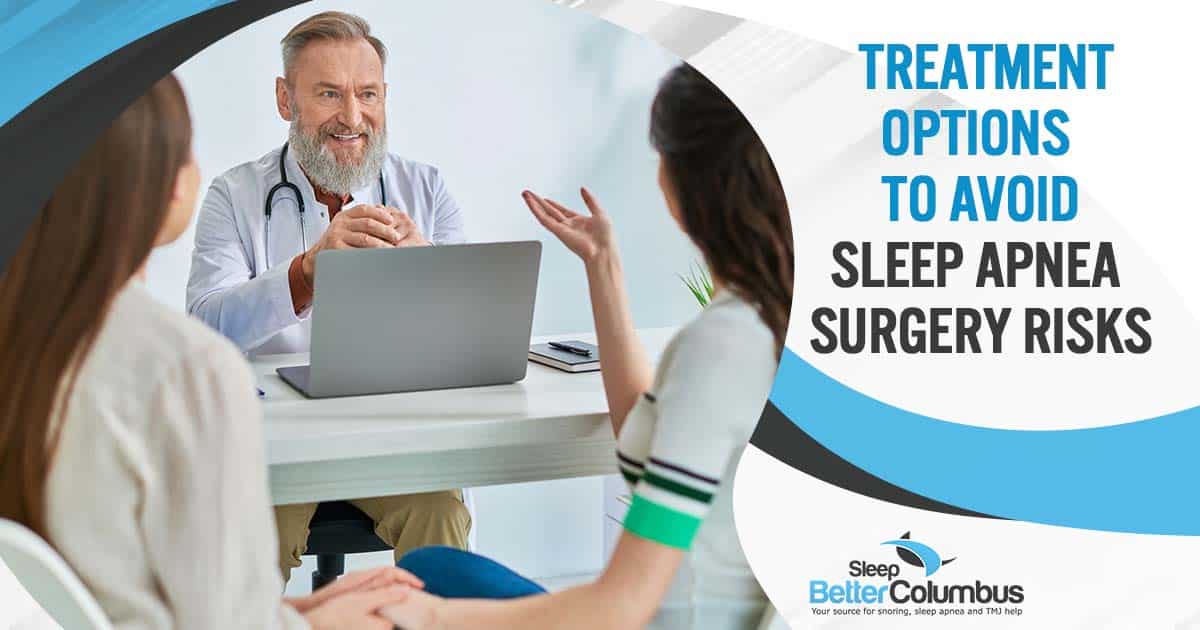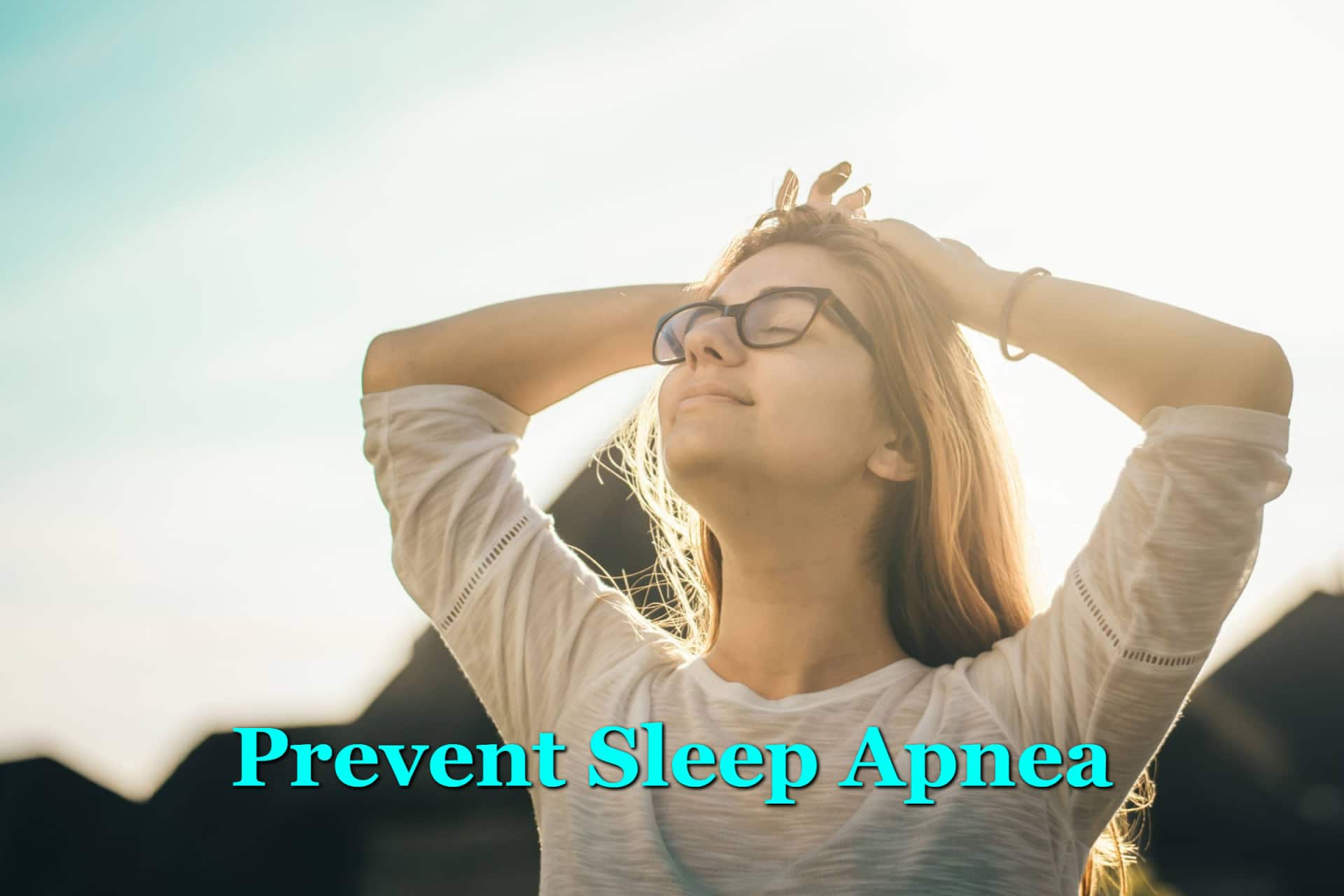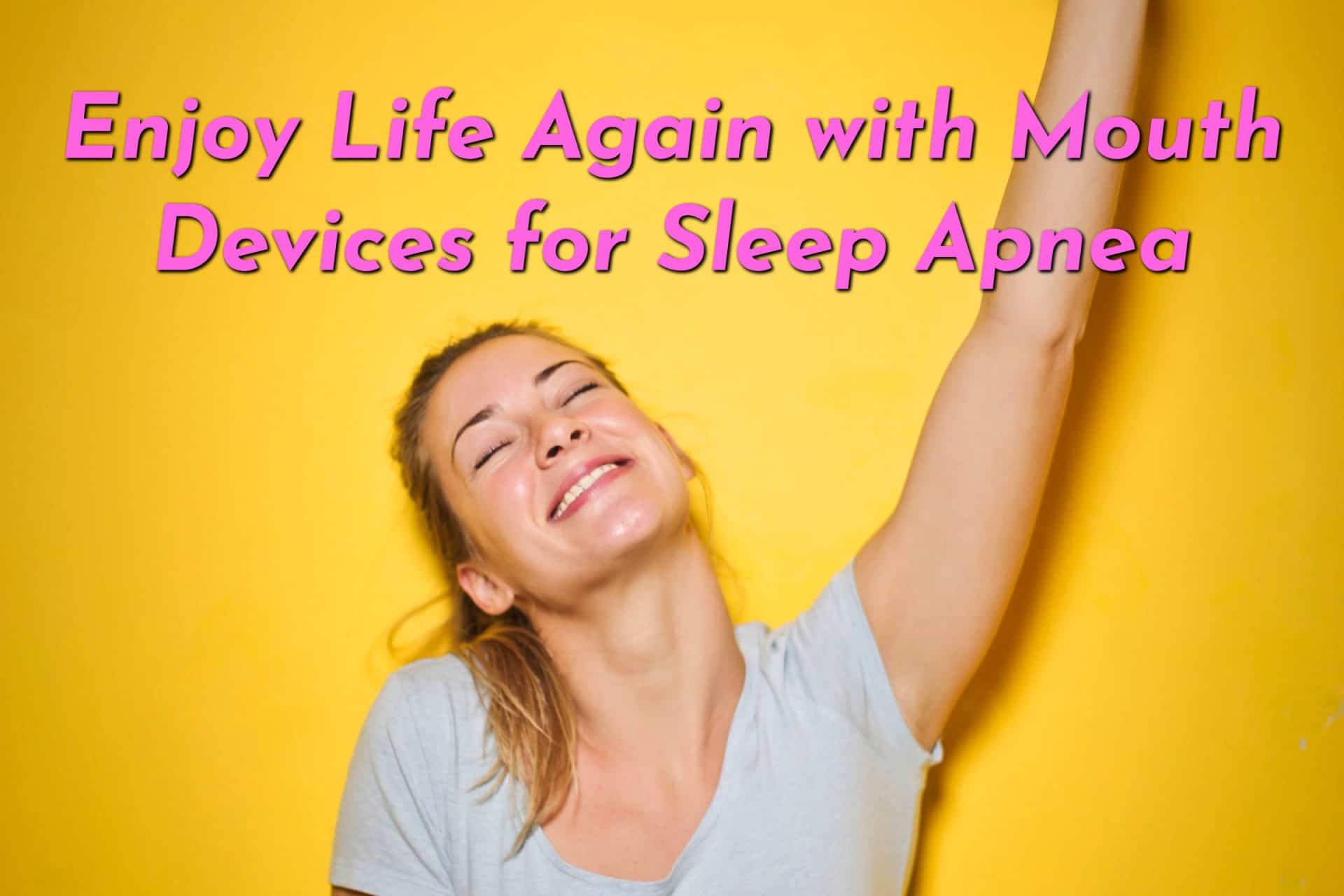Sleep Apnea Surgeries Have Multiple Potential Side Effects and Complications
All surgical procedures carry potential risks and possible complications, and this is no different for each type of sleep apnea surgery. The more invasive a sleep apnea surgery is, the higher the risk level for the sleep apnea patient. Thankfully, non-invasive sleep apnea treatment is possible.
Some of the side effects and complications from sleep apnea surgery depend upon the surgical procedure’s location. Sleep apnea surgeries that affect the soft tissues of your nose, mouth, throat, neck, or airway carry an increased risk for complications localized to those specific areas. At the same time, nerve stimulators, such as the Inspire system, have unique risks associated with the nerve-stimulating device’s location and potential malfunctions.
Surgical procedures require anesthesia, which is a concern for sleep apnea patients. Anesthesia, specifically general anesthesia, can be quite dangerous for patients who have obstructive sleep apnea (OSA). Using anesthesia is riskier when you have sleep apnea because the condition slows down breathing and can make you more susceptible to the effects of anesthesia. Additionally, sleep apnea can make it harder for patients to become conscious again and take a breath after surgery.
Risks Associated with Sleep Apnea Surgeries
There are several risks associated with surgery in general. Some of the risks associated with sleep apnea surgeries include, but are not limited to, the following:
- excessive bleeding
- blood clots
- infection
- new breathing problems
- urinary retention
- deep vein thrombosis (blood clots)
- difficulties with swallowing
- nerve injuries
- an allergic reaction to the anesthesia
- loss of sensation or feeling in the affected area
- muscle weakness in the adjacent muscles
- pulmonary embolism
- injuries to your teeth, tongue, or soft palate
Additional Risks Associated with Surgically Implanted Sleep Apnea Treatment Devices
Surgically implanted sleep apnea treatment devices, like the Inspire system, carry additional risks. Risks related to the surgery itself include swelling, nausea, pain, headaches, infection, and temporary tongue weakness. In some cases, these issues take months to resolve and require medication.
Risks explicitly associated with a nerve-stimulating device that has been surgically implanted include:
- mouth dryness
- tongue abrasions
- discomfort from stimulation
- discomfort from the presence of the device
- a potentially lengthy period of making adjustments to stimulator settings to alleviate or eliminate side effects from the device
- another surgery is required if the device doesn’t work for you and needs to be removed.
Alternative and Complementary Treatment Options for Sleep Apnea Are Safer than Surgical Options
Several non-surgical sleep apnea treatment options can be used to treat obstructive sleep apnea. These alternative treatment options can be used alone or in combination and don’t have the potential downsides or risks that sleep apnea surgeries have. The sleep specialists at Sleep Better Columbus will work with you to find alternative sleep apnea treatments that work for you.
Alternative treatments can include lifestyle changes like avoiding alcohol and sedative medications before bedtime, quitting smoking, frequent and increased physical exercise, and weight loss when indicated.
Other nonsurgical and safer sleep apnea treatment alternatives include:
- custom oral appliances (or dental devices)
- different types of PAP (positive airway pressure) machines
- CPAP (continuous positive airway pressure) machines
- APAP (automatic positive airway pressure) machines
- BPAP (bilevel positive airway pressure) machines
- ASV (adaptive servo-ventilation) machines
- oropharyngeal exercises
- positional therapy
- nasal resistors
Dental Devices Offer Sleep Apnea Patients a Safe and Effective Treatment Alternative to Sleep Apnea Surgeries
Oral appliance therapy is a nonsurgical treatment option that is an effective sleep apnea treatment for many people who have obstructive sleep apnea (OSA). Using a dental device or sleep apnea mouthpiece to treat sleep apnea is a safer treatment option and doesn’t carry the numerous risks associated with sleep apnea surgeries.
An oral appliance or dental device for sleep apnea treatment is a specially fitted device custom-made by a dentist trained in sleep medicine. An oral appliance’s primary purpose is to keep the airway open during sleep so the normal airflow during breathing isn’t blocked. These dental devices look like a sports mouthguard or an orthodontic retainer but fit more comfortably. The most common oral appliances are mandibular advancement devices (MADs) and tongue-retaining devices (TRDs).
- Mandibular advancement devices are sophistically designed to combat obstructive sleep apnea effectively. MADs called mandibular advancement splints, keep your airway unobstructed by gently moving your jaw forward.
- Tongue-retaining devices, also known as tongue-stabilizing devices or TSDs, keep your tongue from sliding to the back of your mouth and blocking your airway.
Advantages of Using Dental Appliances to Treat Sleep Apnea
Using dental appliances to treat sleep apnea can also improve other symptoms like concentration issues, daytime sleepiness, fatigue, and moodiness. Custom-made oral appliances from a sleep apnea dentist are a popular and effective treatment option since they provide significant advantages and fewer risks compared to other sleep apnea treatments like breathing devices and surgeries.
Advantages of using custom-made dental devices from Sleep Better Columbus include:
- Comfortable to wear
- It is just as effective as other treatment options, including breathing devices and surgical options
- Not as invasive as surgery
- Not loud and noisy like breathing devices
- Relatively nonintrusive
- Compact and portable
- Small and discreet
- Require no recovery time
- Less risky than sleep apnea surgery
- Easier to take and use when traveling
- Don’t require electricity
- Convenient to use
- Lower out-of-pocket costs
Sleep Apnea Specialists Can Help Treat Sleep Apnea without Surgery
The sleep apnea specialists at Sleep Better Columbus are committed to providing compassionate care for all patients and helping each one find the best sleep apnea treatment. We understand that many patients have concerns about sleep apnea treatment options and may prefer alternatives to CPAP machines and sleep apnea surgery.
Sleep Better Columbus’s sleep apnea therapy solution is a simple, comfortable solution that will help those with sleep-disordered breathing sleep better quickly. Specially designed mouthpieces provide an effective and comfortable sleep apnea treatment alternative without the associated risk of sleep apnea surgery.
To learn more about custom oral appliances to treat your sleep apnea without surgery, call the sleep disordered breathing experts at Sleep Better Columbus at 614-777-7350 or book an appointment online.




